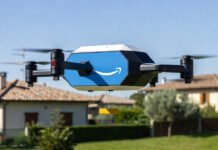AI Efficiency Drives Prompt Workforce Anxiety
Two of the world’s largest retail giants — Amazon and Walmart — are reportedly preparing for potential layoffs as both companies intensify their artificial intelligence (AI) adoption strategies aimed at streamlining operations and boosting profitability.
Corporate insiders told financial outlets that both companies have been reviewing overlapping job functions, particularly in logistics, customer support, and corporate planning — roles increasingly handled by AI systems and predictive analytics tools.
“AI is reshaping how we operate,” said an Amazon executive on condition of anonymity. “It’s about optimizing efficiency, not just reducing costs — but yes, that inevitably changes workforce dynamics.”
📊 Amazon’s Strong Q3 Results Reflect Efficiency Gains
Despite layoff warnings, Amazon reported one of its strongest quarters in recent years, with higher-than-expected profits and a surge in online sales.
The e-commerce giant said Q3 2025 profits rose 18% year-over-year, driven by growth in Prime membership, advertising, and AI-driven logistics optimization.
Amazon’s core retail business benefitted from inflation-weary consumers seeking value, with Prime Day and targeted deals boosting traffic.
The company also cited AI tools in warehouse management, dynamic pricing, and customer service automation as key contributors to improved efficiency.
“AI isn’t just trimming costs — it’s improving accuracy, speed, and personalization,” said Amazon CEO Andy Jassy in the earnings call.
Amazon Web Services (AWS) also saw a 7% jump in cloud revenue, fueled by strong enterprise demand for AI infrastructure and generative AI model hosting.
🏪 Walmart Joins the Automation Wave
Meanwhile, Walmart is advancing its AI and robotics integration across stores and supply chains. The retail giant recently expanded its partnership with Microsoft Azure to deploy AI-powered inventory systems, cashierless checkouts, and demand forecasting algorithms.
However, internal reports suggest certain administrative and regional support roles could be consolidated or eliminated as part of Walmart’s digital transition.
“The technology revolution in retail is real — and not everyone will fit into the new model,” said a former Walmart human resources manager.
Walmart executives maintain that the company’s long-term strategy includes reskilling programs to help employees adapt to AI-assisted workflows.
🤖 AI: The Double-Edged Sword in Retail
Industry analysts describe the current phase of AI integration as both transformative and disruptive.
While automation can reduce costs, increase productivity, and improve logistics precision, it also risks significant job displacement, especially in roles tied to repetitive or rule-based functions.
A report from McKinsey & Company estimates that AI could automate up to 40% of retail tasks by 2030, from customer support chat to warehouse picking.
“We’re entering an era where efficiency and empathy must coexist,” said futurist Dr. Leah Park. “Companies that replace workers without rehumanizing customer experience will suffer reputational damage.”
💰 Investors Applaud, Employees Worry
Following the Q3 announcements, Amazon’s shares rose 3.8%, while Walmart’s stock gained 1.6% on expectations of leaner, more profitable operations.
Investors have largely embraced the AI efficiency narrative, viewing it as essential to maintaining margins in a high-cost environment.
However, labor unions and worker advocacy groups are raising alarms about the pace and transparency of AI-driven restructuring.
The Retail, Wholesale and Department Store Union (RWDSU) issued a statement urging both corporations to “prioritize retraining, not replacement.”
🌐 Broader Trend: Retail Faces AI Reckoning
The AI transformation sweeping the retail industry isn’t confined to Amazon and Walmart. Competitors like Target, Costco, and Alibaba are also investing in AI supply chain models and automated fulfillment systems, though at varying speeds.
The next 12–18 months could see widespread restructuring in corporate retail roles, as machine learning tools become more capable of handling real-time decisions once reserved for managers and analysts.
“AI is becoming the new middle manager,” said retail analyst Victor Huang. “It’s running pricing, logistics, and marketing simultaneously — with far fewer errors.”
⚖️ Balancing Progress and People
Both Amazon and Walmart have emphasized that their AI efficiency initiatives are not purely about layoffs, but about redefining the nature of work.
They point to new roles in data science, AI operations, and digital logistics management as emerging opportunities for employees.
Still, as automation expands, questions around worker displacement, job security, and ethical AI deployment continue to dominate boardroom and public debate.
“Efficiency can’t come at the expense of humanity,” said AI ethics researcher Priya Desai. “The future of work must blend intelligence — both human and artificial.”
















